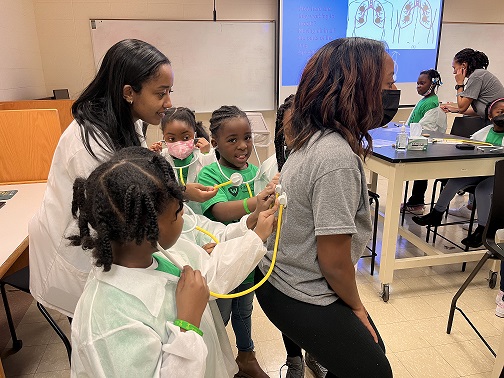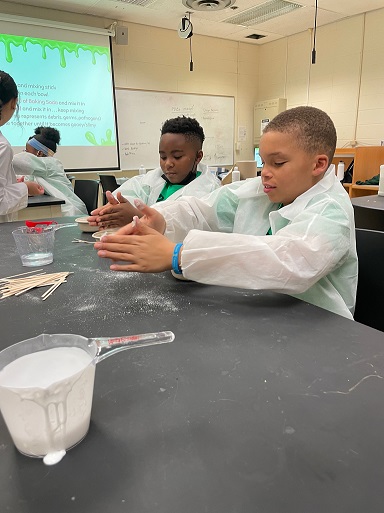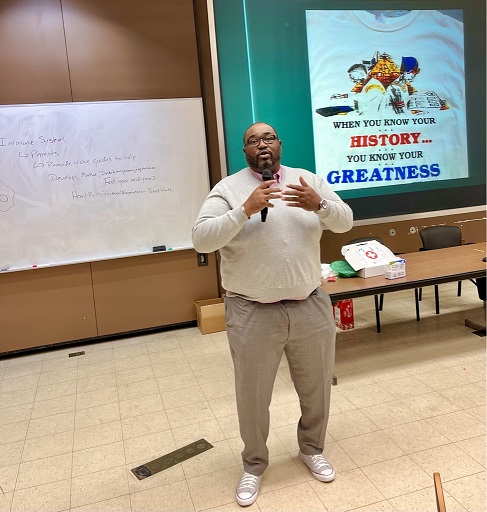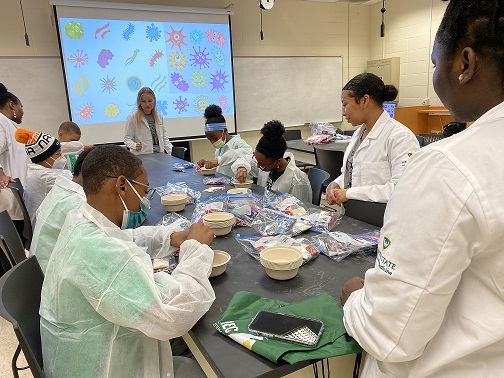
Nearly 100 Detroit area children explored the world of medical science and learned the importance of hygiene and immunity during the annual Reach Out to Youth program at the Wayne State University School of Medicine.
 The theme for the 32nd year of the event, held Dec. 3, was “Bacteria is Mean, Keep it Clean with Healthy Hygiene,” focusing on immunity and the immune system.
The theme for the 32nd year of the event, held Dec. 3, was “Bacteria is Mean, Keep it Clean with Healthy Hygiene,” focusing on immunity and the immune system.
Participants had the opportunity to learn about hand washing using a product that made germs glow. They also constructed models of a virus cell using candy, practiced clinical skills in the M.D. labs in Scott Hall, viewed cells through microscopes, performed a mucous experiment making slime and learned human reproduction.
A key component of Reach Out to Youth is the program for parents of attendees. While their children were engaged with hands-on programs, parents received information about supporting their children’s desire to become physicians. Eric Ayers, M.D., associate professor of Internal Medicine and of Pediatrics, and Lynn Smitherman, M.D., associate professor of Pediatrics, discussed “Keeping Our Children Healthy in An Era of COVID.” Donovan Roy, Ed.D., vice dean of Diversity, Equity and Inclusion, led a session on “Preparing Your Child For Academic Success.”

Conducted by the Wayne State University School of Medicine’s chapter of the Student National Medical Association and the Black Medical Student Association, Reach Out to Youth seeks to introduce Detroit children ages 7 to 11 to medical science and the possibilities of careers in medicine. The event provides children a look into the world of medicine and an understanding that they can cultivate careers in that world. Students explore medicine and science through hands-on workshops and activities presented by medical students and faculty throughout Scott Hall and the Mazurek Medical Education Commons.
About 50 WSU medical students volunteered to staff the event and interact with the attendees.
The program was developed by WSU School of Medicine graduates Carolyn King, M.D. '93, and Donald Tynes, M.D. '95, while they were medical students so that young people in segments of the population considered underrepresented in medicine could see role models who looked like them and become interested in medical careers.